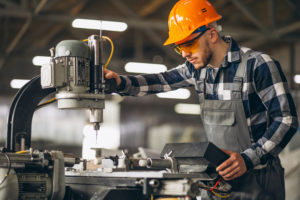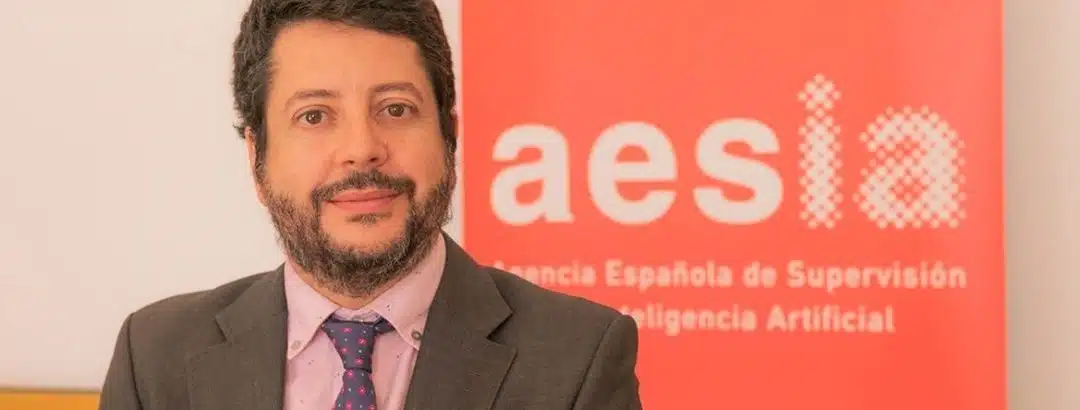admin | 25/01/2021
When the COVID-19 health and social crisis broke out, Chile’s metalworking industry was in the midst of a necessary transition to Industry 4.0. Although the impact of the pandemic has altered the sector’s activity and outlook, the task of promoting the urgently-needed modernization of manufacturing activity remains a priority for the industry. Dante Arrigoni, president of the region’s Association of Metalworking Industries, talks to us about the progress achieved and the challenges faced in the coming fiscal year.
- ASIMET is presented as a business meeting place for the metalworking sector. How does the association work to promote this industry?
ASIMET is a trade union that in 2020 celebrated 82 years of history; its origins stem from a historical moment for our country, when the private initiative was being questioned. Over these eight decades, the role of the union has been professionalizing and adapting to the new challenges faced by the industry, but its objective has always been to provide support to the daily management of companies to enhance their strengths and increase their competitiveness.
Internally, we have specific Corporations, Committees and Circles for each area of the metalworking industry, which advise and provide relevant information to our members on a permanent basis.
In addition, our association plays a public role in representing the companies with the authorities, who we frequently consult with in accordance with the rules established by law, to present our concerns or suggestions regarding issues affecting our sector.
. The metal industry is one of the most important basic industries in industrialized countries. Its level of maturity is usually an indicator of the country’s industrial development. What is the current importance of this sector in the Chilean economy?
The metal industry, and the manufacturing industry in general, has historically been the driving force behind a country’s development. In Chile this is no exception; but unfortunately, in the last 30 years, this industry has lost importance in relation to other economic activities. Thus, going from a 15% share of national GDP, the manufacturing industry now accounts for less than 10%. And in the specific case of metalworking, today we are at 2.1%.
- The metalworking industry has adopted measures to continue operating during the crisis. Which good management practices could you highlight?
Most of the companies in the national metalworking sector have remained in operation throughout the pandemic. Many of our companies play a fundamental role in the functioning of the country, as they are considered strategic providers of essential services. This, together with employers’ concern for the safety of their employees, has allowed this link in the country’s economy to remain operational throughout this period.
It’s important to highlight the commitment of both workers and employers to keep companies operating within a framework of safety and worker protection.
- Unfortunately, the metalworking sector, like so many others, is suffering the impacts of COVID-19. How have they specifically been affected by the pandemic?
Indeed, our growth estimate for 2020 is negative, with projected decreases between 6% and 8%. During lockdown periods, our companies were still active as they are considered to be suppliers for essential companies, but obviously with a much lower level of production. And, of course, with strict prevention protocols that were successful.
Fortunately, in the year’s third quarter the sector began to show signs of recovery, and our partners’ expectations have improved substantially; so much so that in a recent survey we conducted among our companies, growth is projected at 8% for 2021.

The metal industry, and the manufacturing industry in gen-eral, has historically been the driving force behind a country’s development. In Chile this is no exception; but unfortunately, in the last 30 years, this industry has lost importance in rela-tion to other economic activities
. From your point of view, what weight does risk management have in the sector’s corporations?
From the beginning, when the first effects of the pandemic began to be seen, the business leaders of the sector showed concern for their employees and for the continuity of the operation of their companies. For this reason, as a union, we managed to approach each one of them in order to provide the necessary support to achieve continuity in the operation of the sector’s companies; several talks were organized in different areas, such as safety, health, psychology, and in aspects of economic and business support.
- In addition to impacting the operations of large corporations in the industry, has it affected the tenders planned for the sector in Chile?
There is no doubt that companies have had to face great challenges in order to keep their businesses operational. All indicators point to lower activity in the national and global economy; thus, a lower demand for products from the metalworking sector was observed, due to the paralysis of economic sectors such as Construction and Mining, among others, which are big consumers of the sector’s products and services. The delay and postponement of tenders and investment projects have clearly affected the performance of the metalworking sector, which projects around 8% less activity for the current year.
- In this scenario, reactivation of the industry is key. ASIMET has presented a plan for this. Could you briefly indicate the main concepts this plan is based on, and what steps are being taken?
ASIMET, together with Econsult, a leading economic consulting firm, have prepared an Industrial Reactivation Plan with the objective of “revving the engines” and recovering the sector’s level of growth. Among other positive externalities, this plan is designed to generate around 350 thousand jobs in the industry.
Another of the merits of this initiative is that it’s a strategy designed for the short term, with proposals that are easy to implement and can be launched immediately, as they do not require bills, or major legislative or bureaucratic procedures which usually slow down this type of plan.
As for main concepts, the plan is based on 5 pillars:
- Redefining the SME categorization limit, thereby expanding the number of companies that can access support programs and instruments. Specifically, we propose doubling the annual sales limits, which would result in 55% of employees and 20% of sales in Chile being in the SME category.
- Promoting public and private infrastructure on three fronts: Infrastructure Fund, General Directorate of Concessions of the Ministry of Public Works, and Sustainable Project Management Office (GPS) of the Ministry of Economy.
- Technological overhaul to adopt Industry 4.0 practices.
- Incentives to rehire workers until the end of 2021 to address the 25% unemployment rate.
- Establishing a government authority focused on the industry. This is one of ASIMET’s great desires, since such a relevant sector for the economy as ours requires a valid and specific spokesperson. We therefore propose the creation of an Undersecretary of Industry, under the Ministry of Economy.
This plan was sent to government authorities for review, who are currently analyzing it.
- Beyond the challenges presented by today’s pandemic crisis, what other challenges are essential for the proper evolution of the industry?
Since long before the pandemic, ASIMET has been committed to the task of promoting the urgent and necessary modernization of manufacturing activity, due to the irruption of so-called Industry 4.0. And that continues to be our medium- and long-term priority today.
To achieve this, it’s essential, first and foremost, for companies to initiate a digitalization process. And on this point, Chile is in need of improvement. Currently, only one third of the industries in our country have advanced towards digital transformation; that is a cause for concern, and a factor that plays against us in our efforts to move towards this change. This is why a Government role is key; public policies are needed to address this reality and provide the necessary tools to support companies, mainly SMEs, in their digital transformation processes.
The pandemic will only foster the emergence of the Fourth Industrial Revolution. Even if before the coronavirus we thought that Chile should jump on the Industry 4.0 bandwagon, which is radically transforming production systems globally, no one today can doubt the urgency of accelerating the pace towards this path.
- At ASIMET, what role do you see for innovation and the adoption of new technologies in the industry?
We consider both aspects to be key, and as a union we are constantly looking for alliances and strategies that contribute to our partners in the search for cutting-edge solutions for their businesses. For example, I would particularly like to highlight a recent agreement we signed with the Spanish Institute for Research and Technological Development (LEITAT), focused on Additive Manufacturing technologies, which aims to develop and validate solutions that increase competitiveness in companies. The main idea of this Corfo-supported alliance will be to detect opportunities in companies and then co-construct solutions through additive manufacturing that impact their business. The objective is to ensure that the consortium’s capabilities are used by as many of our companies as possible.
We are firmly convinced that via technological development we can change Chile’s productive matrix through innovation.
- And finally, in your opinion, in this new world generated by the health crisis, what trends do you see that could help drive the evolution of the metalworking industry?
As a union we are very concerned about the development of the national manufacturing industry; we believe and have the conviction that industry is the driving force behind a country’s development.
At ASIMET we are concerned about the challenge posed by the Fourth Industrial Revolution, which, according to studies by our union, places us only at a level 2.4. We must undoubtedly promote the development of our companies to make them more competitive in a globalized economy and with a great commercial opening as Chile has had in recent years. Recent events have undoubtedly made us reimagine our way of working and look for alternatives to achieve continuity of operation. We must take advantage of this situation to achieve competitiveness in our companies in this new scenario; it is clear that this requires public policies in which Governmental policies seek the conditions for domestic companies to compete as equals in international markets.
 Dante Arrigoni Cammas is a civil engineer from the Universidad de Chile, with degrees in Corporate Governance from the Universidad Católica, in Business Management from the Universidad Adolfo Ibáñez, and in Family Business Management from the ESE Business School of the Universidad de los Andes.
Dante Arrigoni Cammas is a civil engineer from the Universidad de Chile, with degrees in Corporate Governance from the Universidad Católica, in Business Management from the Universidad Adolfo Ibáñez, and in Family Business Management from the ESE Business School of the Universidad de los Andes.
He was sales manager and general manager of Arrigoni Metalúrgica S.A., where he carried out the transition of the family business and the professionalization of the different companies of the group. In the trade union sphere, he served as vice-president of the Association of Industrial Mining Suppliers, APRIMIN, as well as director of the Chilean Steel Institute (ICHA), where he also held the position of vice-president. Previously, he was a director of the Italian Chamber of Commerce. In July 2018, he was elected as president of ASIMET, and re-elected after two years in office.





